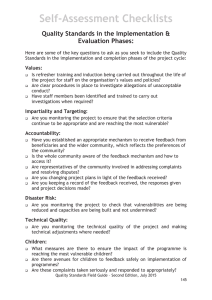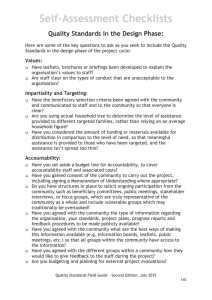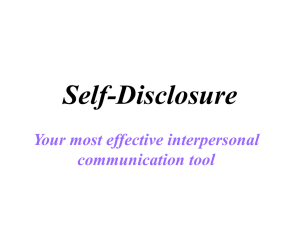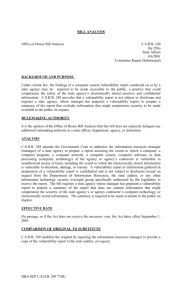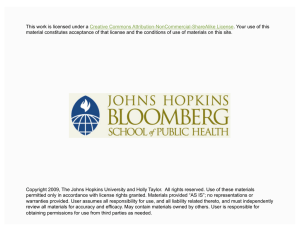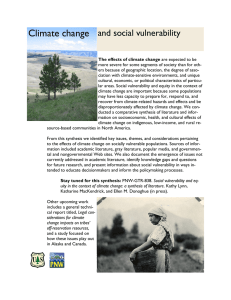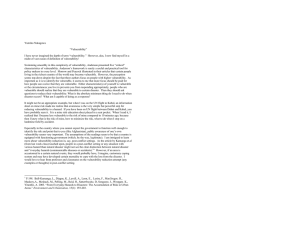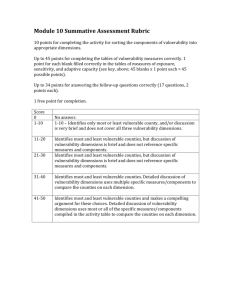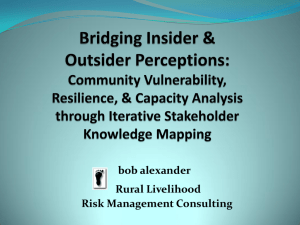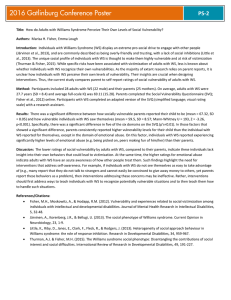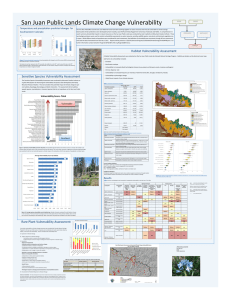Self-Assessment Checklists Quality Standards in the Identification Phase:
advertisement
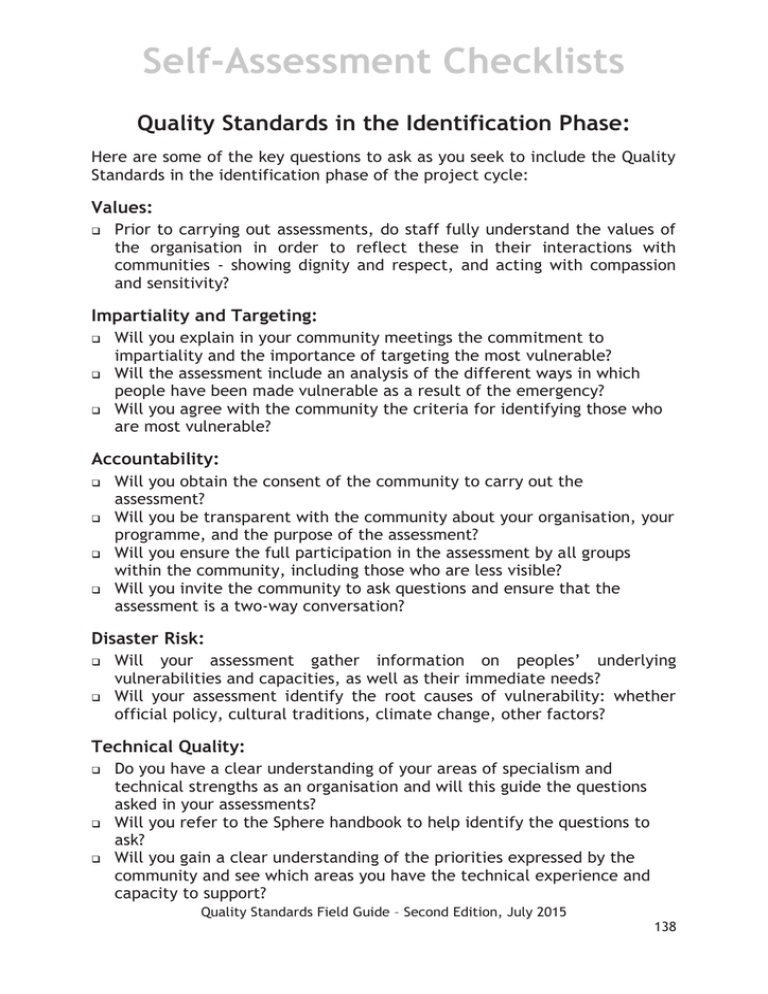
Self-Assessment Checklists Quality Standards in the Identification Phase: Here are some of the key questions to ask as you seek to include the Quality Standards in the identification phase of the project cycle: Values: q Prior to carrying out assessments, do staff fully understand the values of the organisation in order to reflect these in their interactions with communities - showing dignity and respect, and acting with compassion and sensitivity? Impartiality and Targeting: q q q Will you explain in your community meetings the commitment to impartiality and the importance of targeting the most vulnerable? Will the assessment include an analysis of the different ways in which people have been made vulnerable as a result of the emergency? Will you agree with the community the criteria for identifying those who are most vulnerable? Accountability: q q q q Will you obtain the consent of the community to carry out the assessment? Will you be transparent with the community about your organisation, your programme, and the purpose of the assessment? Will you ensure the full participation in the assessment by all groups within the community, including those who are less visible? Will you invite the community to ask questions and ensure that the assessment is a two-way conversation? Disaster Risk: q q Will your assessment gather information on peoples’ underlying vulnerabilities and capacities, as well as their immediate needs? Will your assessment identify the root causes of vulnerability: whether official policy, cultural traditions, climate change, other factors? Technical Quality: q q q Do you have a clear understanding of your areas of specialism and technical strengths as an organisation and will this guide the questions asked in your assessments? Will you refer to the Sphere handbook to help identify the questions to ask? Will you gain a clear understanding of the priorities expressed by the community and see which areas you have the technical experience and capacity to support? Quality Standards Field Guide – Second Edition, July 2015 138 Self-Assessment Checklists Children: q q q Will your assessment find out how many children have been particularly affected and in what ways? Those who are carrying out the assessments, do they have a good grasp of for child development and their needs and rights? Does your assessment include boys and girls’ views? Gender: q q q Will you gain an understanding of the existing roles of men and women – their daily schedules and workloads and the prevailing attitudes towards men and towards women? Will your assessment gather the perspectives of women, men, boys and girls through separate focus group discussions? Will your assessment identify the ways in which vulnerability has increased for men and women as a result of the emergency? HIV: q q Will you gain an understanding of the HIV prevalence rates in the area and the practices and traditions that contribute to vulnerability to HIV? Will you identify the ways in which vulnerability to HIV has increased for men and women as a result of the emergency? Conflict: q q q Will your assessment include an analysis of the conflict situation, using conflict analysis tools? Will your assessment find out what types of project activities or approaches would have a positive impact for the beneficiaries and which might escalate conflict or increase their vulnerability to attack? Have you gathered information from staff, community, local authorities about their perceptions of your organisation, NGOs in general, UN, Government and those involved in the conflict? Environment: q q Will your assessment find out the environmental context – climate change risk, environmental management customs, coping mechanisms and vulnerable resources? Will your assessment find out the changing trends in the environmental situation – rainfall patterns, degradation or other underlying changes? Sustainability: q Will your assessment assess the context and the expectations of sustainability and replicability for the different needs and services discussed in the assessment? Quality Standards Field Guide – Second Edition, July 2015 139 Self-Assessment Checklists q Will you find out what government services are in place or planned and think through how to support them where appropriate? Advocacy: q q Will your assessment seek to identify the underlying policy issues, their causes and effects, that are at the root of the identified situation and that are contributing to vulnerability? Will your assessment identify who has responsibility for these policies? Quality Standards Field Guide – Second Edition, July 2015 140
